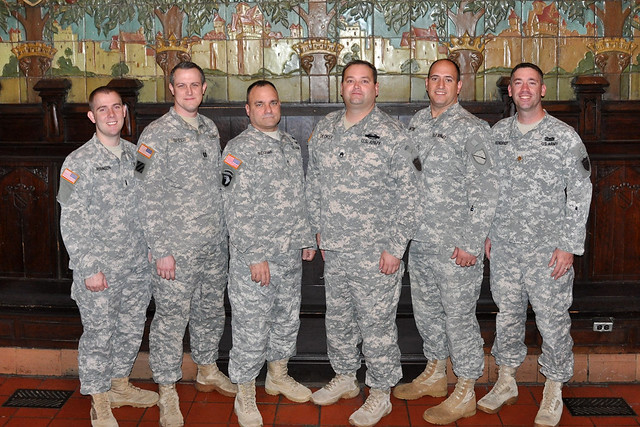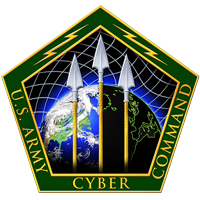Story by
Staff Sgt. Scott Raymond, Kentucky National Guard Public Affairs
[caption id="" align="aligncenter" width="560"]

Soldiers of the Kentucky National Guard's Computer Network Defense Team work to ensure the security of cyber networks in both the Nation and the Commonwealth. In addition to their military training, each member has thorough knowledge of information technology from civilian careers. (Courtesy photo)
FRANKFORT, Ky. -- Kentucky Gov. Steve Beshear recently proclaimed
October as Cyber Security Awareness Month, a testament of the growing technology threat to individuals, businesses and governments' secure information.
The United States Military has recently grown its own warriors to combat the threat as well with the addition of a U.S. Army Cyber Command. With a growing number of cyber defense units, the Kentucky National Guard's Computer Network Defense team remains on the cutting edge of providing defensive cyberspace operations to the Nation and the Commonwealth.
Cyber warfare and many of these units have been around for years, but Maj. Dean Kendrick, commander of Kentucky's cyber team said more attention has been brought to cyberspace threats because of the constantly changing technologies and expanding communication networks.
"I'm proud to be on the leading edge of this new form of combat," he said. "This form, however, isn't much different than traditional combat. The terrain in this case just happens to be virtual rather than physical, but many of the same concepts apply."
[caption id="" align="alignright" width="200"]

Established in 2010, Army Cyber Command is the lead for Army missions, actions and functions related to cyberspace, including the responsibility for planning, coordinating, integrating, synchronizing, directing and conducting Army network operations and the defense of all Army networks.
The unit's mission is to ensure the proper security measures are in place for Government information networks. According to Cyber Command leadership, the number and sophistication of cyber threats are on the rise, partially due to the ease at which hackers are finding ways to attack networks.
This past June, Kentucky's team partnered with cyber defense Soldiers and Airmen from the Tennessee and Alabama National Guard for CyberGuard, a tactical-level exercise focused on national defensive cyberspace operations in a dynamic joint-cyber training environment. The Soldiers and Airmen worked with elements of the National Security Agency and U.S. Cyber Command to support the Department of Homeland Security and FBI's responses to simulated foreign-based attacks on infrastructure networks.
Chief Warrant Officer Michael Robinson was among the first Army officers with a military operational specialty devoted to cyber operations. He describes the unit's role as exciting, but far from an easy one.
"It is difficult to explain what cyber warfare is and will become," he said. "The scope of our effort goes from detecting and responding to advanced threats to training users about securely handling their emails."
Members of the unit bring a wealth of experience to the fight. Not only have these Soldiers trained extensively with the military in this new field, but they all work with information technologies in their civilian careers. The team gathered with civilian cyber security professionals in September at the annual DerbyCon, a conference for information technologies and network security in Louisville, Kentucky.
As the cyber threat grows, no one agency or department is immune, which is why the unit also spends a good amount of time working alongside a variety of organizations in joint operations and exercises.
The Soldiers agree that their constant training and learning puts them in good position to both attack cyber threats and defend network securities of the Commonwealth and the Nation. It is their ever-evolving skills they rely on to succeed on the digital battlefield.
Staff Sgt. Adam Decker believes in the old adage of having a good offense is the best defense. As a former infantryman, he has seen how the Army takes the fight to its enemies. Decker said this warfare has the potential to be thousands of miles away then within your own organization in seconds.
"Coming from a combat related MOS, I've learned that modern cyber security measures have become the new mission and protections," said Decker. "Meaning I've moved from an assault rifle to a keyboard."